COLLABORATIVE APPROACHES FOR LINKING CIRCULAR ECONOMY INITIATIVES - CIRCULINK
What is a Circular Economy?What is a Circular Economy?
Looking beyond the current take-make-waste extractive industrial model, a circular economy aims to redefine growth, focusing on positive society-wide benefits. It entails gradually decoupling economic activity from the consumption of finite resources, and designing waste out of the system. Underpinned by a transition to renewable energy sources, the circular model builds economic, natural, and social capital. It is based on three principles:
- Design out waste and pollution
- Keep products and materials in use
- Regenerate natural systems
There's a world of opportunity to rethink and redesign the way we make stuff. 'Re-Thinking Progress' explores how through a change in perspective we can re-design the way our economy works - designing products that can be 'made to be made again' and powering the system with renewable energy. It questions whether with creativity and innovation we can build a restorative economy.
Source: www.ellenmacarthurfoundation.org
Vad menas med cirkulär ekonomi?
Om man bortser från den nuvarande modellen att "tillverka-köpa-slänga", syftar en cirkulär ekonomi till att omdefiniera tillväxten med fokus på positiva fördelar för hela samhället. Det innebär en gradvis nedtrappning av den ekonomiska verksamheten från konsumtionen av ändliga resurser och utformningen av avfall utanför systemet. Med stöd av en övergång till förnybara energikällor bygger den cirkulära modellen på ekonomiskt, naturligt och socialt kapital. Den bygger på tre principer:
- Avfalls förebyggande genom ECO-design
- Förlänga produktens livscykel
- Återinförande av naturliga system
Det finns en värld av möjligheter att tänka om och omformulera hur vi gör saker. Genom nytänkande kan vi undersöka om en förändring kan omforma hur vår ekonomi fungerar genom att skapa produkter som kan vara gjord för att vara återvinnas igen och bidra med förnybara energier. Onekligen kan vi med kreativitet och innovation bygga en förnyelsebar ekonomi.
Källkod: www.ellenmacarthurfoundation.org
¿Qué es una economía circular?
Mirando más allá del actual modelo industrial extractivo de toma de residuos, una economía circular apunta a redefinir el crecimiento, centrándose en los beneficios positivos para toda la sociedad. Implica separar gradualmente la actividad económica del consumo de recursos finitos y diseñar los desechos del sistema. Apuntalado por una transición a fuentes de energía renovables, el modelo circular construye capital económico, natural y social. Se basa en tres principios:
- Diseño de residuos y contaminación.
- Mantener los productos y materiales en uso.
- Regenerar sistemas naturales.
Hay un mundo de oportunidades para repensar y rediseñar la forma en que hacemos las cosas. 'Re-Pensando el Progreso ' explora cómo, a través de un cambio en la perspectiva, podemos rediseñar la forma en que funciona nuestra economía: diseñar productos que puedan 'hacerse para ser hechos de nuevo' y alimentar el sistema con energía renovable. Se cuestiona si con creatividad e innovación podemos construir una economía restaurativa.
Fuente: www.ellenmacarthurfoundation.org
O que é uma Economia Circular?
Olhando para além do atual modelo industrial extrativa “Extrair–Produzir-Descartar”, uma economia circular tem como objetivo redefinir o crescimento, concentrando-se em benefícios positivos para toda a sociedade. Implica a dissociação gradual da atividade económica do consumo de recursos finitos e a conceção de resíduos fora do sistema. Apoiado por uma transição para fontes de energia renováveis, o modelo circular constrói capital económico, natural e social. Baseia-se em três princípios:
- Prevenção de resíduos pelo eco design.
- Extensão do ciclo de vida do produto.
- Regeneração dos sistemas naturais.
Há um mundo de oportunidades para repensar e reformular a forma como fazemos coisas. "Repensar o progresso" explora como, através de uma mudança na perspetiva, podemos reprojetar a forma como a nossa economia funciona -concebendo produtos que podem ser "feitos para serem feitos novamente" e alimentando todo o sistema com energias renováveis. Coloca em evidência que, com criatividade e inovação, podemos construir uma economia restauradora.
Τι είναι η Κυκλική Οικονομία;
Στρέφοντας το βλέμμα πέρα από το σημερινό βιομηχανικό μοντέλο «παίρνω-παράγω-αποβάλλω», η κυκλική οικονομία στοχεύει στον επαναπροσδιορισμό της ανάπτυξης, εστιάζοντας σε οφέλη για ολόκληρη την κοινωνία. Αυτό συνεπάγεται τη σταδιακή αποσύνδεση της οικονομικής δραστηριότητας από τη χρήση μη ανανεώσιμων πόρων και τον αποκλεισμό των αποβλήτων από το σύστημα. Υποστηριζόμενο από μια μετάβαση στις ανανεώσιμες πηγές ενέργειας, το κυκλικό μοντέλο δημιουργεί οικονομικό, φυσικό και κοινωνικό κεφάλαιο. Βασίζεται σε τρεις αρχές:
- Αποκλεισμός των αποβλήτων και της ρύπανσης.
- Διατήρηση των προϊόντων και των υλικών σε χρήση.
- Αναγέννηση φυσικών συστημάτων.
Υπάρχουν πολλές ευκαιρίες για να ξανασκεφτούμε και να επανασχεδιάσουμε τον τρόπο με τον οποίο κατασκευάζουμε αντικείμενα. Ο «Επαναπροσδιορισμός της Προόδου» διερευνά το πώς μέσω μιας αλλαγής στην οπτική μπορούμε να σχεδιάσουμε εκ νέου τον τρόπο με τον οποίο λειτουργεί η οικονομία μας - σχεδιάζοντας προϊόντα που «κατασκευάζονται ώστε να μπορούν να κατασκευαστούν και πάλι» και τροφοδοτώντας το σύστημα με ανανεώσιμες πηγές ενέργειας. Εξετάζει κατά πόσο μέσω της δημιουργικότητας και της καινοτομίας μπορούμε να οικοδομήσουμε μια οικονομία αποκατάστασης.
About
The CIRCULINK project aims to merge social innovation and the world of work, committing to raise awareness about the advantages of Circular Business Models and their relation with Social Innovation at work by a complex blended learning training kit for corporate trainers, SMEs and Circular Economy entrepreneurs and to support collaboration and networking between Circular Economy actors, SMEs, VET providers, educational institutions and other stakeholders of the sector.
This Guide Book aims to enable further collaboration and highly responsive participation of circular stakeholders’ and SMEs in circular initiatives. This Guide includes recommendations, practical and pragmatic approaches taken from the experience of this project, aiming to encourage individuals, groups and organisations to project, implement and/or participate in social innovation through CE initiatives, thus increasing the implementation of circular practices in SMEs.
Handbook for CirculinkLearning Platform
Considering the requirements and challenges of the digital era, the training surface will be an innovative digital learning platform where users will be able to find training material. The training material will be composed of 5 modules covering the main topics of Social Innovation and Circular Economy and an open area for collaboration opportunities between Circular Economy actors and SMEs who wish to learn more and implement Circular Business Models.
Resources
Here you will find various resources about the following topics related to the Circular Economy.
Social Innovation
Collaboration Management
Diversity Management
Social Economy
Corporate Social Responsibility






